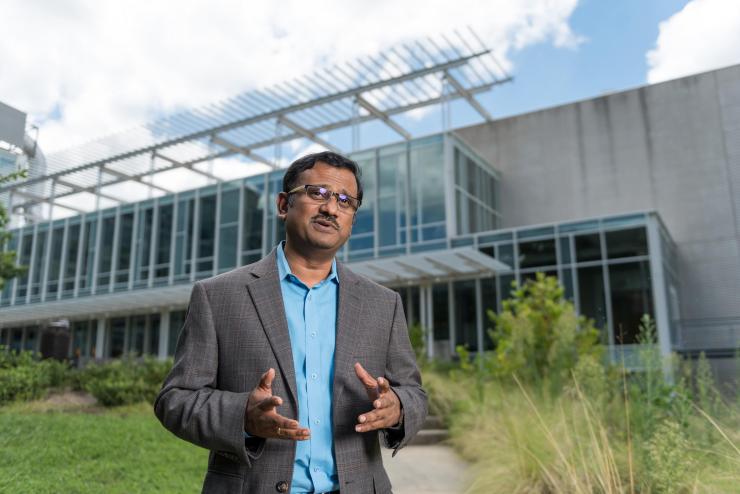Triple-major Daniel Gurevich Wins Love Family Foundation Scholarship
Apr 30, 2020 — Atlanta, GA

After four years at Georgia Tech, Daniel Gurevich will graduate this spring with bachelor’s degrees in industrial engineering, physics, and math. As a result of his academic excellence, he has been honored with the Love Family Foundation Scholarship, the highest honor Georgia Tech can give to a graduating student. Gurevich was nominated for the $10,000 award by both the College of Sciences and the College of Engineering.
“We couldn’t be prouder of Daniel for being granted this prestigious award,” said Steve McLaughlin, dean and Southern Company chair of the College of Engineering. “His excellent scholastic record, as well as his involvement in multiple research labs here at Tech, is an outstanding accomplishment that sets an exceptional example for all students.”
For Gurevich, receiving the prestigious Love Family Foundation Scholarship is the culmination of his hard work and dedication while at the Institute. As a first-year physics major, he realized that the amount of college credit he had earned in high school would make a second major in industrial engineering manageable. When Gurevich shared his academic plans with his family, friends, and professors, everyone supported him. But a third major?
Gurevich recalled talking with Fran Buser, an academic advisor in the H. Milton Stewart School of Industrial and Systems Engineering (ISyE), about his intention to study math as well.
“She asked, ‘Well, are you sleeping? Are you eating? Is everything okay?’” Gurevich remembered. “When I said, “Yes, I'm doing fine. Everything is good,’ she said, ‘Go ahead.’”
The commonality between Gurevich’s majors -- math, physics, and industrial engineering -- is applied mathematics. “The ability to explain how things work is something that really attracts me about math,” he explained. It is this passion for using mathematics to understand how the world and its people function that is driving him to graduate school. In the fall, Gurevich will begin his Ph.D. studies at Princeton University in applied and computational mathematics.
He hopes to continue the research on cardiac arrhythmias he began at Georgia Tech. He was first attracted by the field's importance to society — arrhythmias are a leading cause of death worldwide — as well as its rich mathematical background. Now, Gurevich aims to develop low-energy defibrillation protocols that are more effective with fewer side effects.
When not busy with his studies or research, Gurevich can often be found playing chess. Chess has been a major part of his life – he began playing at age five and became an international master in high school. At the beginning of his third year at Tech, Gurevich joined the chess club. The group’s Friday afternoon meetings comprise his favorite Tech memories.
“It was really the main source of challenge for me. I had to learn to work hard because competing against all these proven players is very tough,” he said. “It's definitely something that has helped me succeed in my academics.”
Gurevich is very appreciative for his undergraduate education, and the Institute will always hold a special place in his heart.
“I can’t think of a more welcoming place that has such great people, and of course, Tech is an academically outstanding institution," Gurevich said. "My education here has been the best possible opportunity for me to lay a foundation of knowledge that will propel me forward.”
He is looking ahead to further learning, further research and – someday – to teaching the next generation of students.

Communications Assistant
H. Milton Stewart School of Industrial and Systems Engineering




